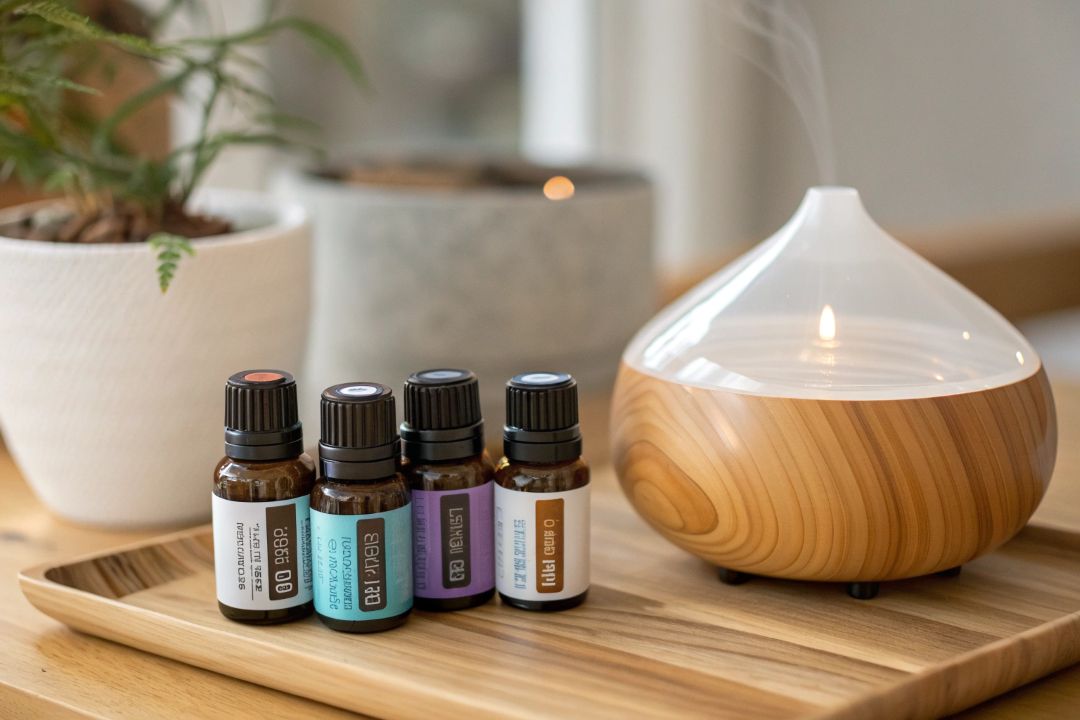In the world of aromatherapy and home fragrance, the terms fragrance oils and essential oils are often used interchangeably—but they are very different. Knowing the distinctions helps you choose the right oils for your needs and, most importantly, the best aroma diffuser to use with them.
👉 If you’re new to diffusers, check our guide: What is a Nebulizer Diffuser?
What Are Essential Oils?
Essential oils are natural, concentrated extracts derived from plants, flowers, roots, or resins. They are obtained through methods like steam distillation or cold pressing and are valued for their therapeutic benefits.
-
100% natural with no synthetic additives
-
Used in aromatherapy for relaxation, stress relief, focus, and mood support
-
Examples: lavender, eucalyptus, tea tree, frankincense
For more detailed science on essential oils and aromatherapy, see this NIH study on the health effects of essential oils.
What Are Fragrance Oils?
Fragrance oils are typically synthetic blends, sometimes mixed with natural extracts, created to mimic specific scents. They are often used in candles, perfumes, soaps, and air fresheners.
-
Made in a lab—not purely natural
-
Typically stronger and longer-lasting scents
-
Wide variety of aromas not available in nature (e.g., vanilla cupcake, ocean breeze)
👉 Curious about how diffusers play into daily life? Read: How to Create a Daily Ritual with Your Diffuser.
Key Differences Between Essential Oils and Fragrance Oils
| Feature | Essential Oils | Fragrance Oils |
|---|---|---|
| Source | Natural plant extracts | Synthetic or blended |
| Benefits | Therapeutic, aromatherapy | Mainly scent |
| Purity | 100% natural | Can contain chemicals |
| Cost | Higher due to extraction process | Lower, mass-produced |
| Use Case | Aromatherapy, wellness, relaxation | Candles, perfumes, soaps |
For a quick overview, check Healthline’s guide: Essential Oils vs. Fragrance Oils.
Which Diffuser Is Best for Essential Oils?
When it comes to diffusing essential oils, not all diffusers are created equal.
-
Ultrasonic diffusers use water and vibrations to disperse oils. While affordable, the water can dilute essential oils and alter their purity.
-
Nebulizing diffusers (waterless diffusers) use only air pressure to atomize pure essential oils into fine particles. This preserves the integrity, potency, and therapeutic value of the oils.
👉 Learn more: 5 Reasons Why High-End Consumers Choose Nebulizer Diffusers.
Why Choose a Concrete Nebulizing Diffuser?
Concrete and glass nebulizing diffusers combine modern minimalist design with functional wellness benefits:
-
Eco-friendly, sustainable materials
-
No heat or water, ensuring oil purity
-
Stylish design fits into mindful corners, meditation spaces, or modern homes
👉 See our product inspiration: The Concrete Diffuser That Elevates Your Space.
Final Thoughts
Understanding the difference between fragrance oils and essential oils ensures you select the right products for your goals. If you are looking for true aromatherapy and wellness benefits, essential oils paired with a waterless nebulizing diffuser are the best choice.
👉 Explore DiffuPure’s collection of nebulizing diffusers designed for essential oil lovers who value purity, design, and well-being.



